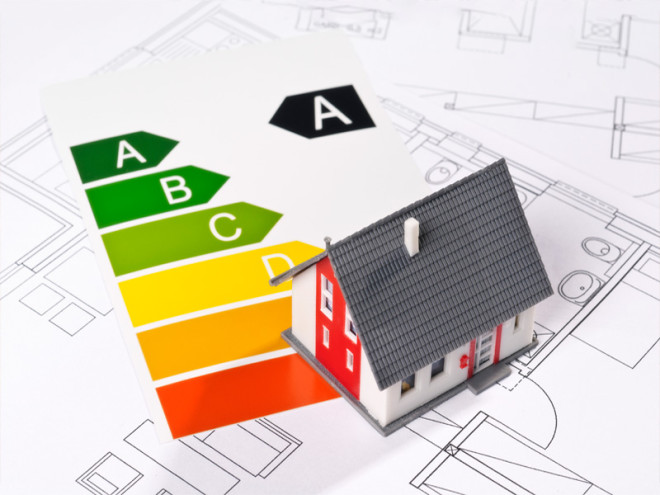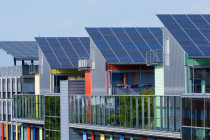The term ‘audit’ isn’t typically associated with positive connotations – most of us envision sorting through years of old receipts in shoeboxes or painstakingly going through reports with a socially bereft accountant for weeks on end. Energy audits, on the other hand, are quite different.
Undertaking a home or commercial energy audit not only reduces your carbon footprint, it also adds up to big savings on your utility bills. Most will have heard of energy audits, but many may not know what’s involved or what to expect.
And if you’re looking for an easy way to get on the energy audit bandwagon, a lighting audit is a great place to start. On average, switching six 75-watt incandescent bulbs (based on six hours per day of use) for LEDs will save you $89/year. And that’s just for six bulbs!
How to Start Your Own Energy Audit
Take a tour of your home and make note of how many incandescent bulbs are in use and their wattage. Use this handy bulb savings calculator to see just how much you can save by switching each one to LED. The savings add up quickly.
Still not sure if the effort is worth your while? Here are three things that will hopefully broaden your perspective on energy audits (no pocket protectors or adding machines required).
When it comes to making improvements, four is the magic number.
A recent study by the Shelton Group, a U.S.-based advertising agency specializing in green products and services, found that the average homeowner would need to incorporate four energy-saving improvements to see a reduction in monthly bills. Even for those who are committed to the cause and ready to implement some changes, knowing where to start or which changes will make the biggest impact, can be difficult.
Industry experts suggest auditing and making improvements to the building envelope and/or mechanical systems can find homeowners some of the biggest energy savings.
The ideal building envelope is a protective, tightly sealed barrier that keeps energy where it needs to be depending on the time of year – inside your home during the winter and outside in the summer. An energy audit may identify opportunities to tighten up your building envelope by redoing caulking and weather-stripping to reduce leakage, adding insulation, or replacing windows and doors.
According to Direct Energy, sealing air leaks and improving insulation can save homeowners over $400 a year. Patrick Langston’s article for the National Post has specific tips including the best resistance levels (R-levels) for insulation in each area of your home and the best windows (triple-glazed with low-E coatings and argon) that will result in the highest rate of return on your audit investment.
Keep the savings coming with incentives and rebates too!
In addition to saving money on utility bills, there are many government programs offering incentives and rebates to Canadians who purchase energy-efficient products and/or implement energy audit recommendations.
National Resources Canada lists some of the rebates and incentives available in participating provinces and territories. For example, Enbridge Gas Distribution in Ontario has an incentive program that will reimburse eligible participants up to $2,100 once certain levels of gas savings are achieved – pretty great right?
In this particular program, a pre-approved Certified Energy Auditor conducts an energy audit and suggests upgrades that will help homeowners save on natural gas consumption. Based on the results of a post-retrofit energy audit, homes that achieve 25-49% gas savings will receive rebates and reimbursements totaling $1,600. – homes achieving 50% or more in gas savings receive incentives totaling $2,100.
What You Need to Know About Energy Audits:
Not all energy audits are created equal. There are plenty of resources available with tips on how to conduct your own energy audit, but the average home or business owner won’t have all the tools of the trade for a thorough and accurate audit. A good energy audit will:
- Be conducted by a professional, experienced energy auditor. Currently, the field is not regulated by the federal government, but certification programs do exist including the Certified Energy Auditor program offered through the Canadian Institute for Energy Training (CIET).
- Evaluate your home’s insulation, heating and cooling systems, and total energy use from basement to attic.
- Include a blower door test. Using a powerful fan that mounts inside the frame of an exterior door, this test helps determine a home’s airtightness. The fan pulls air out of the house, lowering the air pressure inside. The air pressure differential draws air in through any unsealed cracks and openings throughout the home so that auditors can assess the quality of the building envelope.
- Provide you with an energy rating, which can be useful when applying for certain incentive programs and can be attractive for resale purposes – the higher the rating, the better.
- Offer improvement recommendations or retrofits that will help guide the changes that make the best sense for individual home or business owners.
Energy audits are a powerful tool for assessing opportunities to improve the efficiency of your home or business. Even if an on-demand, tankless water heater or heat recovery ventilator isn’t feasible, little changes like plugging your small electronics into a timed power bar or turning off the dry cycle on your dishwasher can make a difference.
What are some small things you do to save energy at home or at the office?
About The Author

- Serial Entrepreneur, Technologist and Inventor my objective is to develop useful products that have a net positive effect in the lives of those that use them and the environment that we live in. CEO of Mission LED Lighting Company Ltd.
- 2017.12.27UncategorizedSaving the World and Saving Money: Green Home Improvements Every Homeowner Should Make
- 2017.01.17Be green & save5 Simple Green New Year Resolutions For 2017
- 2016.11.09LED factsReplacing a 400 HID Lamp for an LED
- 2016.09.26Be green & saveVintage LED Bulbs Make What’s Old New Again





Jeff Carbine
I loved it when you said the term ‘audit’ isn’t typically associated with positive connotations – most of us envision sorting through years of old receipts in shoeboxes or painstakingly going through reports with a socially bereft accountant for weeks on end. Energy audits, on the other hand, are pretty different. We have been paying very high electric bills with the actual consumptions compared to the previous months. I will follow your advice to consult a utility bill audit firm to check the problem.
Reply